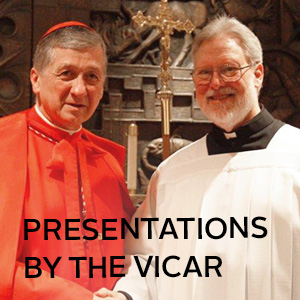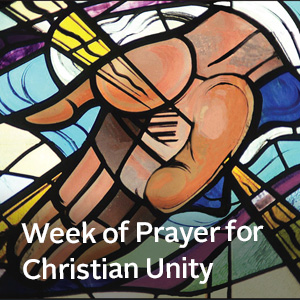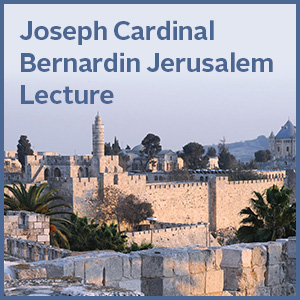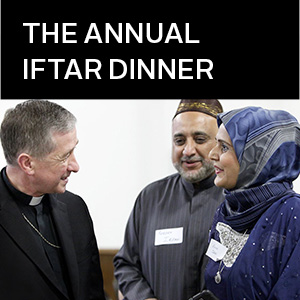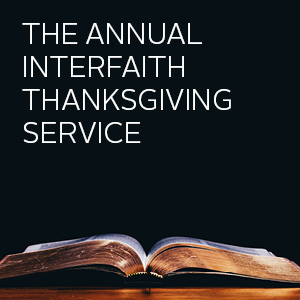Bernardin Remembrance
Becoming Human to One Another:
Commemorating Cardinal Joseph Bernardin’s Legacy
25 Years After His Death
Rabbi Wendi Geffen
Holy Name Cathedral
Chicago, IL
November 1, 2021
I am deeply humbled to stand here this evening in commemoration of the life and enduring legacy of Cardinal Joseph Bernardin. Having arrived in Chicago at the start of my rabbinate five years after his death, I never had the privilege of knowing or working with Cardinal Bernardin personally. However, I stand here profoundly indebted to him, along with the entire Chicago Jewish community, as beneficiaries of the bonds he forged between our two communities in both word and deed over the course of his service. Although Cardinal Bernardin has been gone a quarter of a century, the results and impact of his love of the Jewish people along with his tireless dedication to building bridges between our communities endure most profoundly as, undoubtedly, today, the Jewish people have no greater ally or, better said, brother, than the Catholic church - a direct result of the Cardinal’s work and ongoing influence. Cardinal Bernardin’s commitment to the Jewish community, no less to building ecumenical relationships across so many different faith groups, stands as the ultimate model for nourishing a common ground that can yield an ongoing harvest of trust, understanding, and collaboration, something sorely needed in our city, our country, our world today.
Cardinal Bernardin’s deep spirit of ecumenism was sewn into his soul early and naturally. Because of his own family’s story of coming to this country and his experiences growing up as a notable minority in South Carolina, his Eminence personally understood what it was to be “the other.” He developed a deep sense of empathy early on, and learned how to bridge gaps between people. As Steve Millies put it in one interview, “Cardinal Bernardin learned how to help people become human to one another.” Undoubtedly, his foundational years, combined with his abiding faith and devotion, created the foundation for the Cardinal’s belief that the church was at its best when it accompanied and heeded the voices within the broader human family, with all its subsets, along its own spiritual journey.
Cardinal Bernardin’s dedication to the Jewish community and Jewish people took on new focus soon after his appointment as Archbishop in 1982, when he pledged to promote Catholic-Jewish relations through a tone of reconciliation and restoration, declaring powerfully to the Chicago Jewish community, "I come to you as your brother, Joseph." And undoubtedly it was the culmination of this exchange that brought the cardinal to Israel in March 1995, where he spoke directly and forcefully about the dangers of antisemitism, urging a restoration of the history of Christian anti-Semitism and anti-Judaic theology to Catholic education. In his words, "Including this history, as painful as it is for us to hear today, is a necessary requirement for authentic reconciliation between Christians and Jews in our time.” Deeply influenced by the work of Pope John XXIII, the Second Vatican Council, and Nostra Aetate, and then later Pope John Paul II, Cardinal Bernardin’s brotherly embrace from that time forward ushered in a new era of Catholic/Jewish relations here, one that continues to be championed by Cardinal Cupich and the diocese still today. In his heart, Cardinal Bernardin profoundly believed that one could not be a true Christian without a relationship with the Jewish people, and he was willing to take significant and serious action not just to make real his own belief in his time, but more importantly, to model the steps of personal accountability and dedication that could ensure the continuity of such relationships over the long course of time as well.
I can think of no better example for us in our day to elevate as a larger model for sowing seeds of goodwill and healing in the face of the spirit of divisiveness which has sadly come to define this age. Cardinal Bernardin’s embodiment of respect and kindness, willing collaboration with goodness, integrity, sound argument in opposition to offenses against the common good, ability to separate the policy from the person, only judging others by the quality of their character, not to mention never forgetting the powerful impact of humor and a warm smile, all of these and more stand as practical guidance for any and all of us interested in, as the Psalmist puts it, building our world with love. Indeed, this night, let us all recommit ourselves to sincere and cordial dialogue in conversation with an open heart and genuine good will, actively seeking out and affirming those areas of common ground or principles we share, so that we might all find ways to become more human to one another, united in our shared purpose to uphold the dignity and divinity of all human beings.
